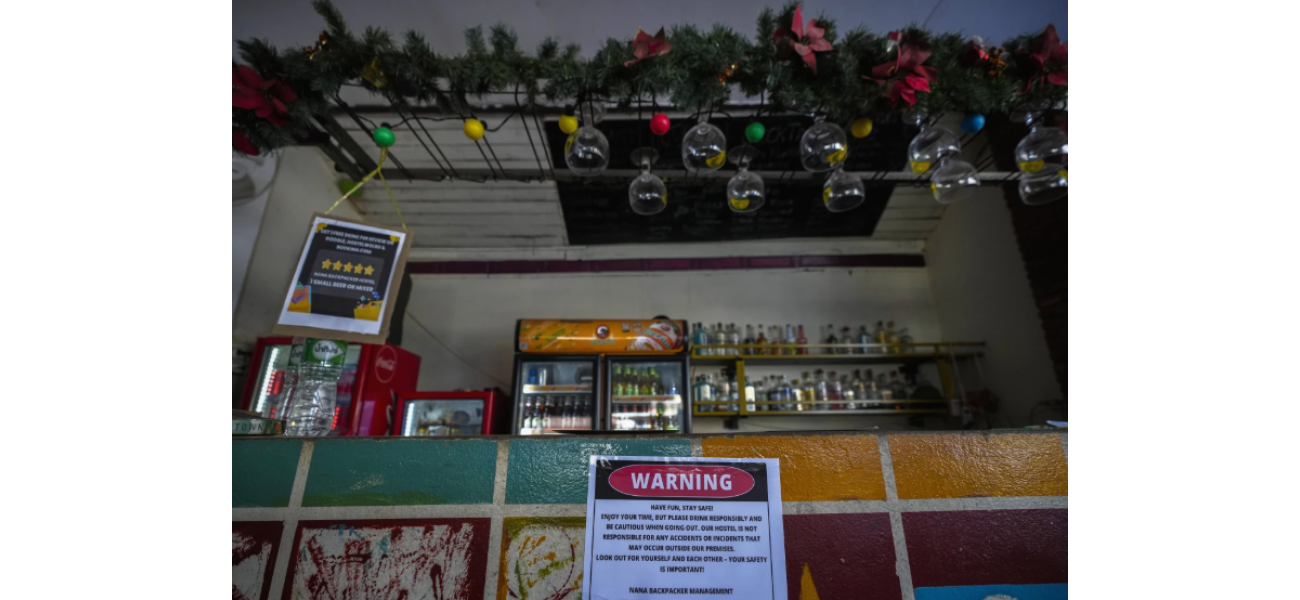Methanol is a toxic substance found in some alcoholic drinks that can cause serious health issues if consumed in high quantities.
Six people, including two Australians, have died from drinking methanol-contaminated beverages.
November 24th 2024.

Tragedy struck in Laos as two young Australians and a British woman lost their lives to suspected methanol poisoning. The victims had consumed tainted alcohol, which also claimed the lives of an American man and two Danes. A New Zealander has also fallen ill from the same cause. While the US State Department has issued a warning to travelers about the dangers of methanol poisoning, many are left wondering what exactly methanol is and how to avoid it.
To begin with, there are three main types of alcohol - ethanol, methanol, and isopropyl. Ethanol is the type found in consumer spirits and is the only one that is safe for consumption. On the other hand, isopropyl is the main ingredient in rubbing alcohol and hand sanitizers. Methanol, also known as wood alcohol due to its production from wood distillation, is commonly used as fuel and in products like antifreeze and solvents.
But what happens if you consume methanol? According to the Methanol Institute, even a small amount, ranging from 25 to 90 milliliters, can be fatal without proper medical treatment. However, if detected early, methanol poisoning can be successfully treated. Symptoms of methanol poisoning include headaches, dizziness, decreased consciousness, coma, seizures, nausea, vomiting, blurred vision, and many others, as stated by the US Centers for Disease Control.
So why does methanol end up in drinks if it is not meant for consumption? Unfortunately, some unscrupulous bars add methanol to mixed drinks to make them more potent and to save money on using more expensive ethanol-based spirits like vodka or rum. This practice is not limited to Laos or Southeast Asia but happens wherever taxes on legitimate alcohol are high or the cost of legitimate alcohol is deemed too steep, according to the Methanol Institute. Additionally, methanol can also unintentionally end up in drinks during the distillation process in home-brew distilleries with loose regulations, often found in poorer countries.
To avoid methanol poisoning, the solution is simple - do not drink it. However, this can be challenging as methanol is colorless, odorless, and tasteless. In light of the recent poisonings in Laos, the British Foreign Office has advised only purchasing alcohol from licensed liquor stores and bars, checking for intact bottle seals, and inspecting labels for poor print quality or incorrect spellings. The Methanol Institute also suggests opting for safer options such as canned beer, cider, wine, pre-mix, and duty-free products. It also warns against homemade brews and free or heavily discounted drinks.
In conclusion, methanol poisoning is a preventable tragedy that can have fatal consequences. It is crucial to educate oneself about the dangers of methanol and to make informed decisions when consuming alcohol. Always remember, when in doubt, it is better to be safe than sorry.
To begin with, there are three main types of alcohol - ethanol, methanol, and isopropyl. Ethanol is the type found in consumer spirits and is the only one that is safe for consumption. On the other hand, isopropyl is the main ingredient in rubbing alcohol and hand sanitizers. Methanol, also known as wood alcohol due to its production from wood distillation, is commonly used as fuel and in products like antifreeze and solvents.
But what happens if you consume methanol? According to the Methanol Institute, even a small amount, ranging from 25 to 90 milliliters, can be fatal without proper medical treatment. However, if detected early, methanol poisoning can be successfully treated. Symptoms of methanol poisoning include headaches, dizziness, decreased consciousness, coma, seizures, nausea, vomiting, blurred vision, and many others, as stated by the US Centers for Disease Control.
So why does methanol end up in drinks if it is not meant for consumption? Unfortunately, some unscrupulous bars add methanol to mixed drinks to make them more potent and to save money on using more expensive ethanol-based spirits like vodka or rum. This practice is not limited to Laos or Southeast Asia but happens wherever taxes on legitimate alcohol are high or the cost of legitimate alcohol is deemed too steep, according to the Methanol Institute. Additionally, methanol can also unintentionally end up in drinks during the distillation process in home-brew distilleries with loose regulations, often found in poorer countries.
To avoid methanol poisoning, the solution is simple - do not drink it. However, this can be challenging as methanol is colorless, odorless, and tasteless. In light of the recent poisonings in Laos, the British Foreign Office has advised only purchasing alcohol from licensed liquor stores and bars, checking for intact bottle seals, and inspecting labels for poor print quality or incorrect spellings. The Methanol Institute also suggests opting for safer options such as canned beer, cider, wine, pre-mix, and duty-free products. It also warns against homemade brews and free or heavily discounted drinks.
In conclusion, methanol poisoning is a preventable tragedy that can have fatal consequences. It is crucial to educate oneself about the dangers of methanol and to make informed decisions when consuming alcohol. Always remember, when in doubt, it is better to be safe than sorry.
[This article has been trending online recently and has been generated with AI. Your feed is customized.]
[Generative AI is experimental.]
0
0
Submit Comment





